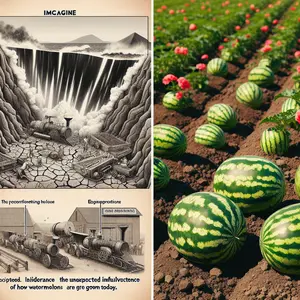
How the 1906 Earthquake Influenced Today's Watermelon Crops
The 1906 San Francisco Earthquake unexpectedly led to advancements in agricultural practices, including the development of drip irrigation systems, revolutionizing crop cultivation.
Category: Accidental Discoveries
Read More ➔
Benjamin Franklin's Glass Armonica: a Forgotten Instrument
The glass armonica, an instrument invented by Benjamin Franklin, produces ethereal sounds and once caused hysteria.
Category: Accidental Discoveries
Read More ➔
Australia's Unconventional 1932 Emu Conflict: The Great War
In 1932, Australia waged the "Great Emu War" against emus damaging crops, a bizarre and unsuccessful military campaign highlighting post-WWI agricultural struggles.
Category: Accidental Discoveries
Read More ➔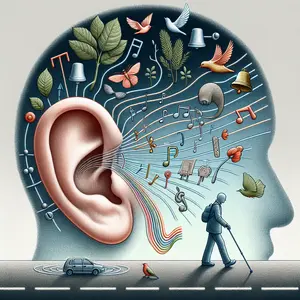
Human Echolocation: How Some People Can 'See' Without Sight
Human echolocation enables visually impaired people to navigate by emitting sounds and interpreting echoes, creating a mental map of their surroundings for enhanced mobility.
Category: Accidental Discoveries
Read More ➔
The Accidental Discovery of the World's Largest Vernal Pools
In 1983, Dr. Mary Ellyn Bennis discovered the world's largest vernal pools in Northern California, highlighting their rich biodiversity and ecological importance.
Category: Accidental Discoveries
Read More ➔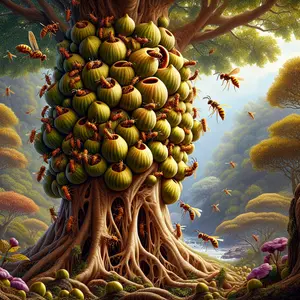
Sycamore Fig Trees: Unique Pollination by Tiny Wasps
The symbiotic relationship between sycamore fig trees and fig wasps is an astonishing, yet little-known aspect of natural ecology.
Category: Science
Read More ➔
Composting with Human Hair: an Unusual and Effective Method
Discover the benefits of composting human hair, a nutrient-rich, waste-reducing, and pest-deterring material that enhances your garden's growth and sustainability.
Category: DIY
Read More ➔
The Unsung Role of Geckos in Artificial Adhesive Technology
Inspired by geckos, new adhesives mimic their foot microstructures, offering strong, versatile adhesion for medical, robotic, and space applications.
Category: Accidental Discoveries
Read More ➔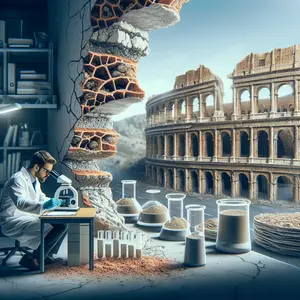
Ancient Roman Concrete: The Secret to Its Longevity
The durability of ancient Roman concrete has puzzled scientists for centuries, leading to a recent unexpected discovery related to its longevity.
Category: Science
Read More ➔
Giraffe's Tongue Acts as a Natural Sun Protection Mechanism
The dark blue-black coloration of a giraffe's tongue acts as a natural sunscreen to prevent sunburn.
Category: Science
Read More ➔
Impact of Cosmic Rays on Earth's Evolutionary Path
Cosmic rays, high-energy particles from space, induce DNA mutations, significantly influencing evolution and biodiversity through increased mutation rates and adaptation.
Category: Science
Read More ➔
The Neglected Eruption of Mount Toba: a Human Catastrophe
Approximately 74,000 years ago, a super eruption from Mount Toba occurred in present-day Indonesia. Its impact was so profound that it nearly caused the extinction of the human race.
Category: Accidental Discoveries
Read More ➔
How a Mistake Created the Popular Super Soaker Water Gun
The Super Soaker, a popular water gun, was accidentally invented by a NASA engineer while working on heat pumps.
Category: Accidental Discoveries
Read More ➔
Unraveling the Enigma: The Ancient Antikythera Mechanism
An ancient Greek device known as the Antikythera Mechanism has been dubbed the world's first analog computer. Discovered in a shipwreck off the coast of Greece, it dates back to around 100 BCE and features intricate gears and dials that could predict astronomical positions and eclipses with remarkable precision.
Category: Accidental Discoveries
Read More ➔
Catastrophic Gas Release: The Lake Monoun Tragedy Unveiled
A lake in Cameroon, Lake Monoun, exploded in 1984, causing the death of 37 people. The cause was discovered to be a sudden release of CO2 from its depths.
Category: Accidental Discoveries
Read More ➔
Plants' Hidden Language: How They Communicate in Silence
Plants communicate with each other using an underground network of fungi, often referred to as the 'Wood Wide Web'.
Category: Science
Read More ➔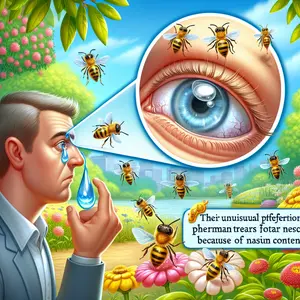
Sweat Bees Attracted to Human Tears Due to Salt Content
Some species of bees, known as sweat bees, surprisingly prefer human tears over nectar due to their sodium content.
Category: Science
Read More ➔
The Magic of the Miracle Berry: a Flavor-Altering Fruit
A berry that changes your taste perception, making sour foods taste sweet.
Category: Accidental Discoveries
Read More ➔
Exploring the Enigmatic Taos Hum Phenomenon in New Mexico
A low-frequency sound has been heard by locals and visitors alike in Taos, New Mexico, but it is still untraceable.
Category: Unusual
Read More ➔
The Extraordinary Existence of 'Nasa's Golden Record'
In a remarkable endeavor to communicate with potential extraterrestrial life, NASA sent two phonograph records into space in 1977 containing sounds and images epitomizing the diversity of life on Earth.
Category: Science
Read More ➔
Understanding the Mystery Behind Unexplained Traffic Jams
Traffic jams can occur without any apparent cause.
Category: Science
Read More ➔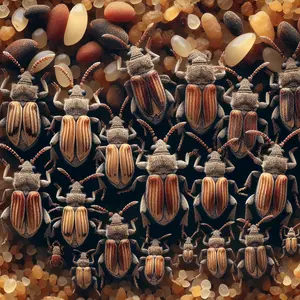
Unique Fingered Insects: Exploring the Fascinating Dactyls
A group of insects called Ptiliidae, commonly known as feathering beetles, are minute in size, some even smaller than a single grain of sand. Despite their size, they have the full complement of body parts that more giant insects have.
Category: Science
Read More ➔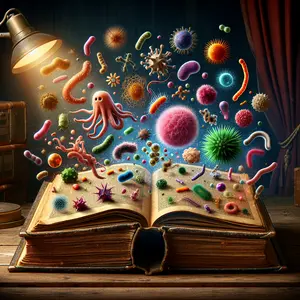
Transmission Risks: Can You Catch a Disease from Books?
It is possible to catch a disease or get sick from an old book due to the microbes and bacteria that can survive within its pages.
Category: Science
Read More ➔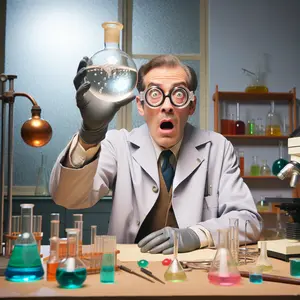
Teflon: Chemistry's Revolutionary, Yet Overlooked Marvel
Teflon, a material commonly known for its non-stick properties in cookware, was accidentally discovered by a chemist named Roy Plunkett.
Category: Accidental Discoveries
Read More ➔